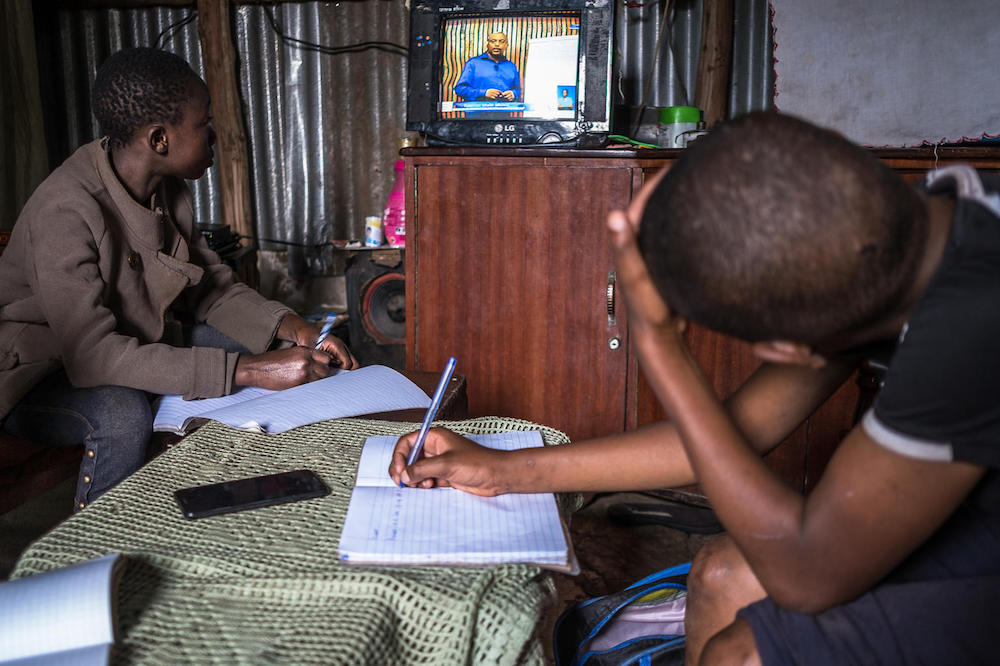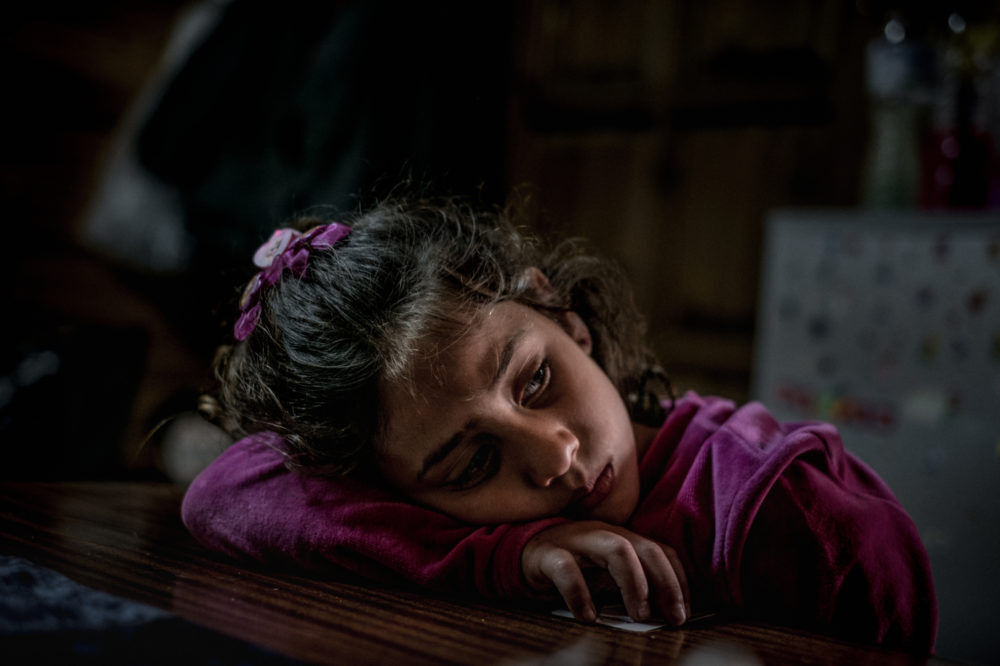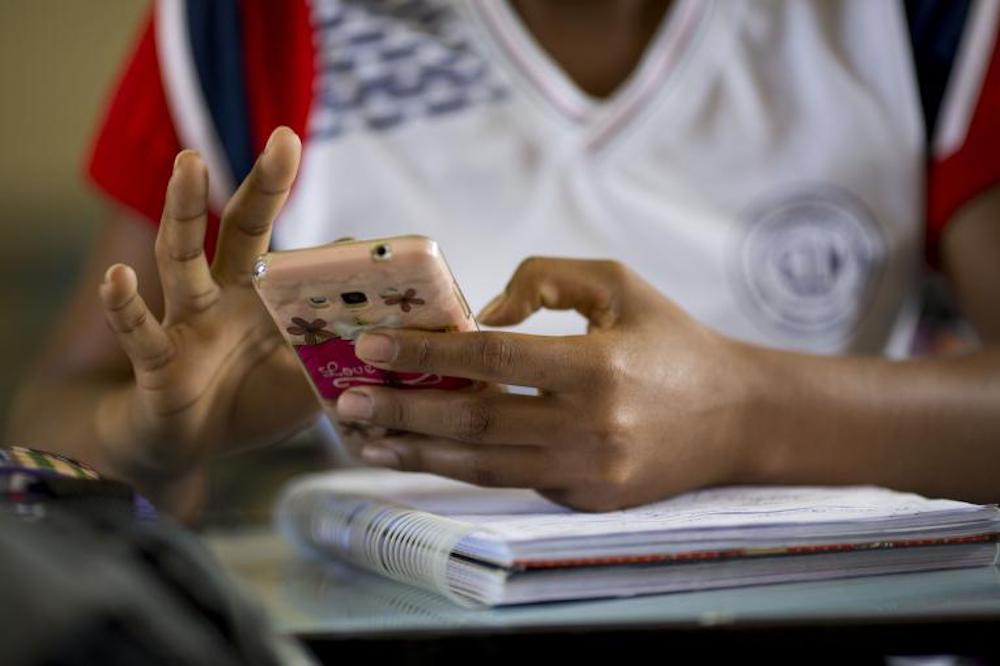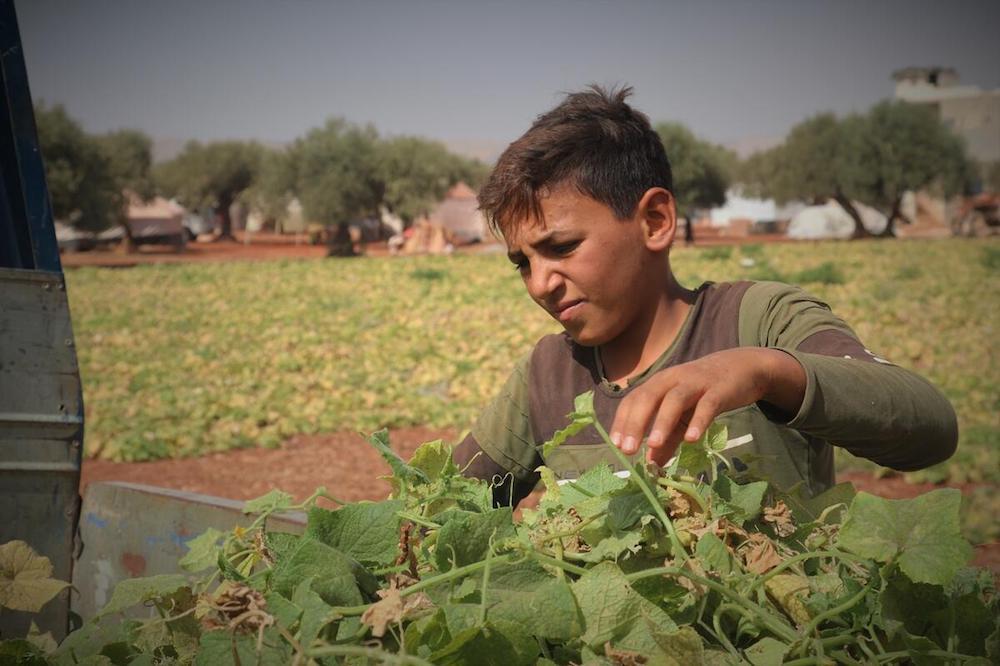Five things you need to know this week about global education

The Covid-19 pandemic dominates our news roundup - including a big increase in children affected by school closures and Pakistan's first "radio school".
UNICEF warning as school shutdowns rise again
The number of children and youth affected by pandemic-related school closures soared in November by 90 million to 320 million – nearly one in five students.
That’s a 38% increase between November 1 and December 1, according to UNESCO figures, following an encouraging October when the number of students shut out of classrooms fell dramatically.
Millions of children have now been deprived of in-person schooling for more than nine months. With many more now reverting to learning at home, UNICEF warned that too many schools are being closed unnecessarily.
“In spite of everything we have learned about Covid-19, the role of schools in community transmission and the steps we can take to keep children safe at school, we are moving in the wrong direction — and doing so very quickly,” said Robert Jenkins, UNICEF Global Chief of Education.
“Evidence shows that schools are not the main drivers of this pandemic. Yet we are seeing an alarming trend whereby governments are once again closing down schools as a first recourse rather than a last resort.”
The UN children’s agency urged governments to prioritise reopening schools and make them as safe as possible. The most marginalised children are the most likely to drop out of education altogether.
Greece keeps primaries and preschools closed

Young children in Greece will not be able to return to school until January (Theirworld)
Greece announced this week it will not reopen schools until January 7. Preschools and primaries had been closed since the middle of November, with secondary schools using remote learning.
Slovakia has ordered schools and most shops to close for at least three weeks from December 21 as the number of Covid-19 cases continues to rise. Ukraine will also shut schools from January 8 to 24.
In the United States, Joe Biden said getting children back to school will be a national priority in the first 100 days of his presidency, which starts on January 20.
He said school districts would be given sufficient funding to implement safety measures such as better ventilation and hiring more staff to oversee smaller, more distanced classrooms.
Pakistan launches pandemic 'radio school'

Digital learning will help millions of children in Pakistan during the pandemic (UN Photo)
More than eight million children in Pakistan will be educated during the pandemic by the country’s first “radio school”. The joint venture between the government and Radio Pakistan will run educational programmes for four hours every day.
There will also be a digital platform where students can take online classes while schools remain closed.
Federal Education Minister Shafqat Mahmood said: “This is an important step as students have suffered a lot throughout this year because of the coronavirus lockdown.”
At the launch of the initiatives, Prime Minister Imran Khan said the Pakistani government would start a single national curriculum. He said it was important to introduce a uniform education system.
Virus forces Syrian children out of school

Ameen works on a farm during the day and does his lessons at night (Save the Children)
Half of the children who were going to school in northern Syria before the Covid-19 outbreak have now dropped out, Save the Children has revealed.
About 2.45 million children across Syria, or one in three, were already out of school by the end of 2019. The pandemic has pushed an additional 50% out of education in the north of the country – meaning two-thirds are now out of school there.
Save the Children’s report Reversing Gains said child labour is a big concern in North East Syria, where 79% of teachers said students dropped out to support their families financially.
Ameen, 12, who lives in a camp in North West Syria, works on a farm to provide for his siblings and mother. He said: “I go to work during the day and in the evenings I watch my classes on the WhatsApp group and listen to the voice notes sent by my teachers, then do my homework.”
Campaign says no to discrimination
Education is a human right, not a privilege.
On #HumanRightsDay and every day, let's make the #RightToEducation a reality for everyone everywhere.
Join us & #StandUp4HumanRights: https://t.co/lA2w30v8lr pic.twitter.com/z0bVlN8pDz
— UNESCO ????️ #Education #Sciences #Culture ???????????? (@UNESCO) December 10, 2020
World Human Rights Day yesterday was marked by the launch of a new global education campaign by UNESCO.
It is also the 60th anniversary of the UNESCO Convention against Discrimination in Education, the first international legally-binding instrument covering the right to education extensively.
The convention has been signed by 106 countries. But secondary education is still not compulsory in 47% of the world’s nations.
UNESCO said: “While the world was not on track to achieve international commitments to education prior to the Covid-19 pandemic, this crisis has particularly exacerbated disparities worldwide, with vulnerable students, who are usually more at risk of being discriminated against, at higher risk of being left behind.”